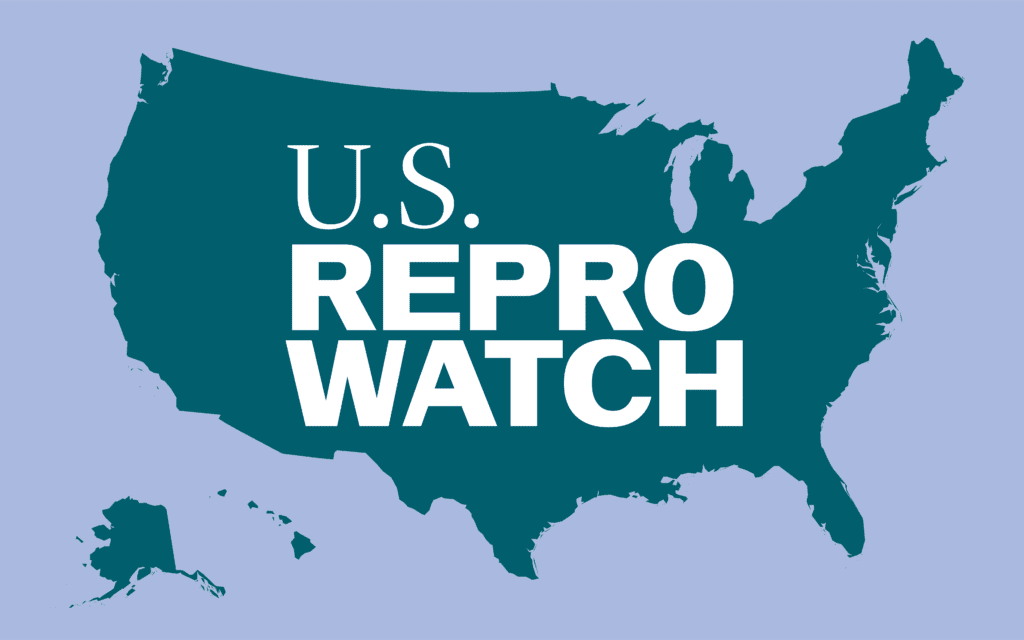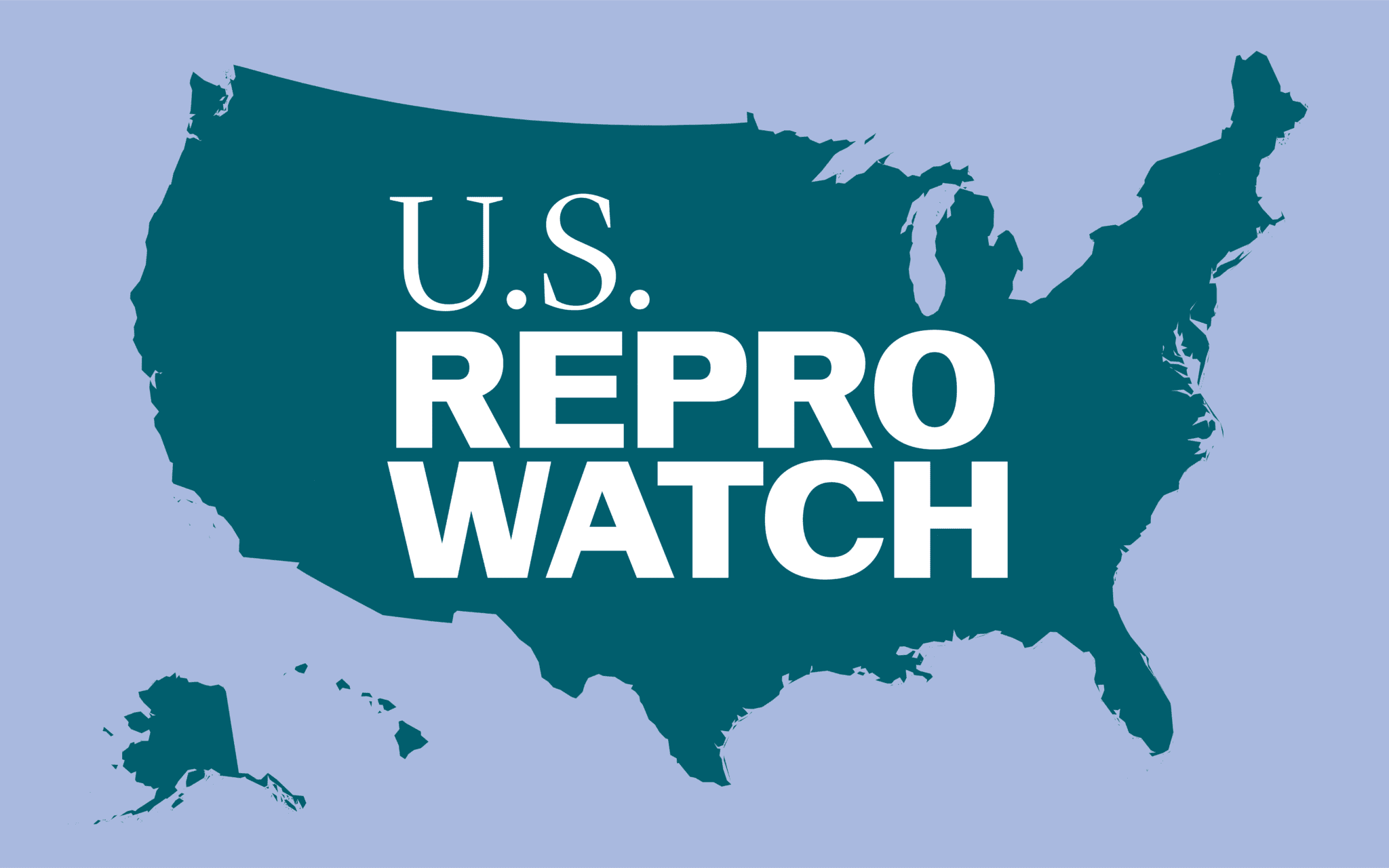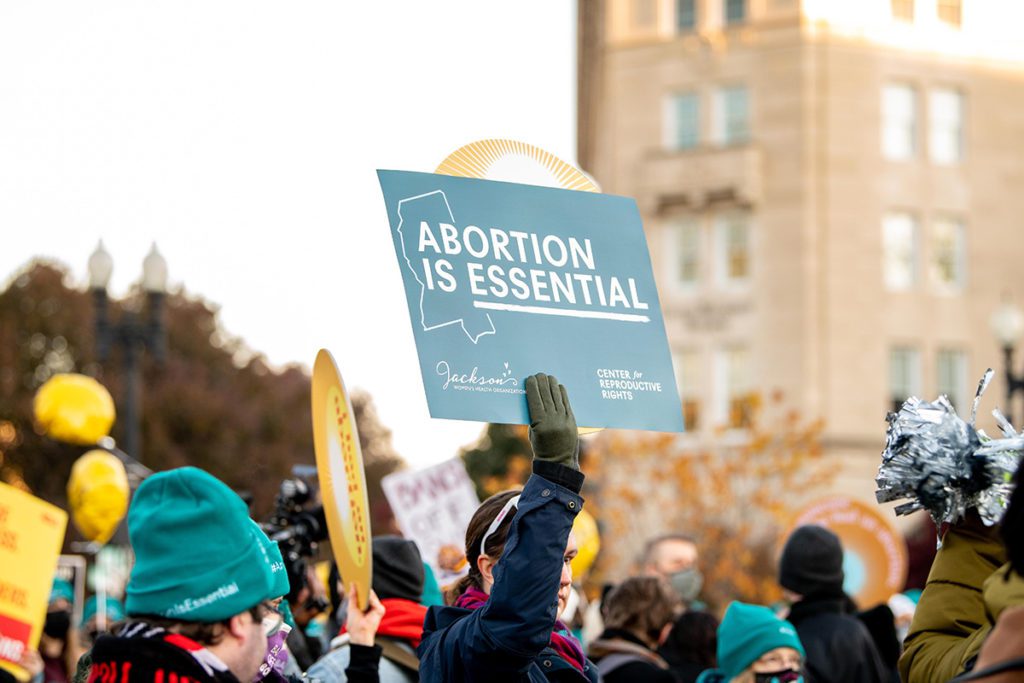U.S. Repro Watch, May 17
North Carolina enacts a 12-week abortion ban, hearing on the medication abortion case, harms of abortion bans, and other top news on U.S. reproductive rights.

U.S. Repro Watch provides periodic updates on news of interest on U.S. reproductive rights. Here are five recent items you won’t want to miss:
1. A hearing in the medication abortion case took place today at the Fifth Circuit Court of Appeals.
- Arguments were presented in Alliance for Hippocratic Medicine v. FDA over Judge Matthew Kacsmaryk’s order revoking approval of mifepristone, which was stayed by the U.S. Supreme Court on April 21.
- Read about today’s arguments in “Fifth Circuit Judges Weigh Arguments in Abortion Pill Case” and find more about the case here.
Read more.
Alliance for Hippocratic Medicine v. FDA
View details about the case threatening access to medication abortion, including court decisions, documents, amicus briefs, and more.
2. Abortion providers in three states sued the FDA to protect access to an abortion medication.
- The Center for Reproductive Rights filed a lawsuit May 8 on behalf of independent abortion providers that seeks to preserve long-term access to the abortion medication mifepristone in Virginia, Montana, and Kansas.
- The case requests that the court maintain the same degree of access to mifepristone that existed prior to a Texas federal court’s April 7 ruling attempting to block the FDA’s long-standing approval of the drug.
- It argues for parallel relief to that granted to the plaintiff states in State of Washington v. FDA, in which the FDA was barred from doing anything to reduce the availability of mifepristone in 17 states and the District of Columbia.
Whole Woman’s Health Alliance v. FDA
This Center lawsuit seeks to protect mifepristone access in Virginia, Montana, and Kansas in light of the drug’s legal uncertainty.
3. FDA advisors greenlit a proposal for over-the-counter birth control.
- An advisory panel unanimously voted in support of making the contraceptive Opill available over the counter May 10.
- The vote came after a two-day meeting which included evidence and testimony of the drug’s safety. Nearly 40 medical experts and advocates spoke during the public comment portion, most of whom were in support of over-the-counter access to the drug.
- The FDA is expected to make a final decision this summer. If approved, Opill would be the first birth control pill available over the counter in the U.S.
4. Several abortion restrictions and protections advanced at the state level.
- The North Carolina legislature overrode Gov. Roy Cooper’s veto of a 12-week abortion ban. The ban reduces the state limit from 20 weeks of gestation to 12 weeks and requires doctors to administer abortion medication in person, reducing access for both North Carolinians and people traveling from nearby states—many of which have banned abortion.
- In South Carolina, lawmakers renewed efforts to restrict abortion by advancing a six-week abortion ban.
- The Nebraska legislature proposed a ban on abortion after 12 weeks of pregnancy, after a six-week ban failed to pass last month.
- Ohio lawmakers approved a controversial resolution that would make it harder to pass constitutional amendments. Voters will now weigh in on the measure during a special election in August, a few months before a measure to protect abortion rights may be on the ballot.
- In Vermont, Gov. Phil Scott signed into law a bill protecting access to abortion and gender-affirming care. This is the 15th interstate shield law to be enacted.
- A coalition in Florida launched a ballot initiative to enshrine abortion rights into the state constitution.
Ukraine Report: Care in Crisis
This report addresses failures to guarantee the sexual and reproductive health and rights of refugees from Ukraine in Hungary, Poland, Romania and Slovakia.
5. In international news, a new study released by the Center and other human rights organizations found that refugees who have fled the invasion of Ukraine are being cut off from accessing reproductive health care and support services for gender-based violence.
- Facing restrictive abortion and contraception laws and other barriers in Hungary, Poland, Romania and Slovakia, many of these refugees feel they have no choice but to return to Ukraine to obtain care.
- Titled Care in Crisis: Failures to guarantee the sexual and reproductive health and rights of refugees from Ukraine in Hungary, Poland, Romania and Slovakia, the report outlines the legal restrictions, cost barriers, information shortfalls, poor quality care and lack of basic services being faced by the refugees.
- It also makes detailed recommendations to the governments of each country, the European Union, and humanitarian actors and donors on policies and practices to reduce barriers and improve access.
- Read more about the report here.
Zurawski v. State of Texas
Learn about the Center’s case against Texas on behalf of Texas women denied abortions after facing severe and dangerous pregnancy complications.
Did you know?
- Abortion bans are obstructing standard medical care and harming both patients and providers, according to a report released May 16 by the University of California San Francisco’s Advancing New Standards in Reproductive Health (ANSIRH). The report, titled Care Post-Roe: Documenting cases of poor-quality care since the Dobbs decision, outlines how patients in states with abortion bans have faced delays, denials of care, and worsened health outcomes since Roe was overturned. It also addresses the emotional and professional impacts of the bans on health care providers, who expressed moral distress at being forced to follow medically unsound practices. Learn more about the report here.
- Barriers to reproductive health care such as birth control grew significantly between 2017 and 2021, according to a new study in JAMA Network Open. The study, Changes in the Frequency and Type of Barriers to Reproductive Health Care Between 2017 and 2021, shows that nearly 45% of U.S. women experienced at least one obstacle to reproductive health care more broadly in 2021—up 10% from 2017. Close to 19% of women reported facing at least three barriers in 2021, compared to 16% in 2017. Marginalized communities disproportionately faced hurdles in accessing care. Such barriers are likely to persist and even worsen, jeopardizing people’s health and wellbeing, in light of the U.S. Supreme Court’s elimination of the constitutonal right to abortion in 2022.
U.S. Repro Watch
Read previous U.S. Repro Watch posts.
Coming Up
May 23 (rescheduled): Hearing on Montana Medicaid rule.
- A state court will hear arguments over a rule that would have effectively eliminated abortion access for patients insured through Medicaid in Montana. The rule was blocked May 1 in response to a lawsuit filed by the Center and its partners.
- The lawsuit, on behalf of Montana abortion providers, argues that the health department rule violates the rights to privacy and equal protection under the state constitution.
- The hearing has been rescheduled to 1:30 p.m. MT/3:30 p.m. ET on May 23. The court will also be hearing a separate case at the same time challenging a law forcing patients to undergo an ultrasound before getting an abortion.






